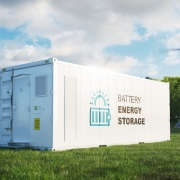How EV Chargers Can Boost Business Revenue
As the adoption of electric vehicles (EVs) accelerates across the United States, the demand for a robust EV charging infrastructure is rising. While government initiatives are helping expand the charging network, private investment will be crucial to meet the growing need. A recent study conducted by MIT researchers suggests that businesses installing EV charging stations may not only help meet this demand but also gain financially.
Study Overview: EV Chargers and Consumer Spending
The study, led by Yunhan Zheng from the Singapore-MIT Alliance for Research and Technology (SMART), analyzed data from more than 4000 charging stations and 140,000 businesses in California. By examining anonymized credit and debit card transactions, the researchers measured how consumer spending patterns changed before and after the installation of EV chargers.
Key findings of the study:
- In 2019, businesses saw an average annual revenue increase of 1.4% after installing EV chargers.
- From January 2021 to June 2023, the average increase was 0.8%, translating to about $400 in additional revenue.
- Businesses within 100 meters of a charging station experienced a revenue boost of approximately 3%.
This suggests that the closer a charging station is to a business, the more likely it is to drive customer traffic.
Why EV Chargers Make Good Business Sense
EV charging stations can serve as a modern version of the traditional gas station convenience store model. Similar to how fuel stations encourage consumers to make purchases while they refuel, EV chargers keep customers in one place long enough for them to spend time—and money—at nearby businesses. This could be especially beneficial for retail and dining establishments.
Zheng pointed out that businesses can also explore shared costs when it comes to installing EV chargers, potentially partnering with other companies or chains. For example, Starbucks and Volvo collaborated with ChargePoint in 2022, installing chargers at select locations in the western United States to attract EV drivers and diversify their revenue.
Looking Ahead: Future Potential for EV Chargers
Although current revenue increases from EV chargers might seem modest, they could grow as EV adoption continues to rise and more businesses install charging infrastructure. As the study shows, even small financial gains add up, and over time, businesses with EV chargers could see greater benefits as more drivers rely on these stations.
Ultimately, businesses that invest in EV charging infrastructure today position themselves to benefit in the future, potentially creating new revenue streams while supporting the transition to greener transportation.
Conclusion
The MIT study underscores a key insight: investing in EV charging stations isn’t just about sustainability—it’s also a smart business decision. As more consumers transition to electric vehicles, businesses that cater to their charging needs are likely to see a steady rise in foot traffic and sales, paving the way for long-term growth.
If you’re considering installing EV chargers at your business, now could be the time to explore how this decision might positively impact your revenue and customer base. The future of transportation is electric, and businesses that adapt early stand to gain the most.




